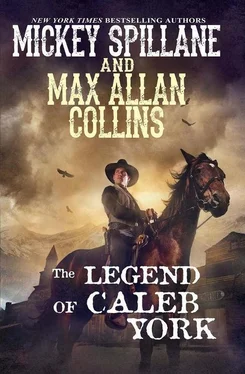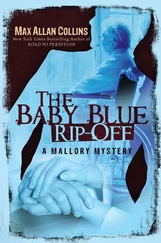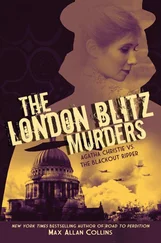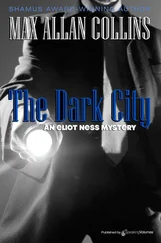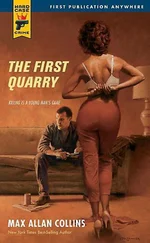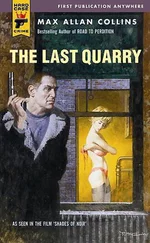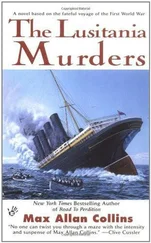Whit frowned and said, “What are you on about, mister?”
The stranger’s expression was impassive, but his eyes were hard. “Doc Miller says this is as virulent a strain of pox as is out there.”
“What about it?” Whit snapped, clearly irritated.
“This old boy Swenson had the sores all over him. Belly, legs, arms.” He gestured with an open hand. “By now, Swenson’s herd has probably infected the rest of Gauge’s cattle.”
“Likely,” Whit admitted.
“And,” the stranger continued, “if our good sheriff wants to keep this quiet, he may well bury his dead cows and try to take to market what he has left.”
Willa frowned. “That... that could spread an epidemic all across the country. Would he do such a thing?”
The stranger grunted a laugh. “What do you think?”
“But... could he get away with it?”
Again the stranger shrugged, giving her a disconcerting smile.
“Why not?” he asked. “Who could prove it? Once the buyers mix those cattle in the pens, they’ll never be able to pin down where it started. Gauge will come away clean. Of course, you can bet he won’t be eating beef for a while.”
“We can’t let this happen!” she said, distress pushing out all other emotions. “This is more than just our ranch, it’s... it’s...”
“This whole part of the country,” the stranger said. “And maybe beyond.”
They sat in silence for several endless seconds.
Then the stranger turned to the foreman. “Mr. Murphy... Whit... how many men do you have left?”
The foreman thought briefly, then said, “Eight, countin’ myself.”
The stranger nodded, his eyes slitted. “Then get those men out on the Swenson range looking for fresh-dug graves. And if you can get inside the herd itself, try to spot any sick steers. So we can show the buyers what Guage has pulled.”
Whit’s eyebrows went up. “Boys may spook at doin’ work like this.”
“Tell them they’re fighting for their lives on this one.”
Whit nodded.
Papa, whose spirit seemed back, said confidently, “Any man still with us will stay with us.”
Willa asked, “What about our cattle?”
The stranger said, “If they’re not infected, they’ll keep. Better send somebody around to the other independent ranches, still fenced off, and quietly spread the word. We don’t want a panic. But I wager you’ll get some willing hands in a hurry.”
Her father said, “You’re sure this is the way to go about this?”
“You care to bet against it?”
“That’s a lot of talk, mister,” Whit said. “And it sounds good, I admit. So you probably deserve our thanks.”
“You’re welcome.”
“I said ‘probably.’ But besides tellin’ everybody else what to do... just what are you going to do in all this?”
“Take a real personal interest,” he said.
Her father asked, “In what way?”
“By talking to a few people in town. I already know a few to approach. Sir, can you give me the names of citizens who you consider allies?”
Her father did so, beginning with the members of the Citizens Committee.
“Thanks,” he said, rising. He hadn’t written them down. “I’ll start there.”
Half-rising herself, Willa said, “Would you like to catch a few hours of sleep first? We have plenty of room in our bunkhouse now, I’m afraid.”
He gave her a smile. “No. Sleep is a luxury none of us can afford right now. Whit... I’m hoping to join you on the range with some volunteers. Can you give me directions to somewhere we might meet around... eleven, say?”
“I can do that,” Whit said, just a touch grudging.
A few minutes later, Willa walked their guest out. The sun was climbing and the morning promised to be as beautiful as the problems they faced weren’t. Still chilly, though. The sun would be working on that.
At the bottom of the porch steps, she stopped him with a hand on a sleeve and said with concern, “If this cowpox is a reality...”
“It is.”
“... and we don’t make it to market, that means... well, it means the Bar-O will be wiped out, doesn’t it?”
They were facing each other, perhaps two feet away. Morning sun was at his back and he was bathed in cool blue shadow.
“Possibly,” he said. “Not for me to say, really. I don’t know how exactly your business affairs stand.”
She gave him a sharp look. “Well, that ten thousand dollars my father promised to pay you—”
He cut her off with a raised hand, then said, “It had a catch in it, as I recall. I had to kill Harry Gauge first, right?”
“Right.” She let him see a smirk that stopped just short of insulting. “Of course, you got half that much just by showing up.”
He smiled wearily, then said, “Miss Cullen, something you should know about me...”
“Yes?”
“I don’t take money for killing people.”
She shaded her eyes with a hand. “Then... who are you, anyway?”
“Not some hired killer. Did it never occur to you that I might really just be somebody passing through, who got caught up in things?”
“No, it didn’t. It still hasn’t.”
He sighed through his nose, a hint of disgust in it. “Well, your father can keep his money.”
She kissed him.
It was sudden, and sweet, then grew forceful on both their parts, as he held her to him, her arms going around him as she stood on tiptoes to meet the big man. Then, looking at each other, noses almost touching, he brushed the side of her face and her hair, and gazed at her with a tenderness that did not fit a man who had gunned down four men yesterday.
She asked, “Why... why do you kill, then?”
“Not for pleasure.”
He touched her face again, unhitched the gelding, and rode off toward town.
Stripes of mid-morning sun cut through barred windows, as Sheriff Harry Gauge entertained a guest in his office — Dr. Albert Miller, who right now looked like he could use a sawbones himself.
In the open area between Gauge’s desk and an old, small deputy’s table sat the lawman’s distinguished guest. The doc’s eyes were swollen, his nose trailing blood from its nostrils, skin along cheekbones ragged and red, lips puffy, discolored and bleeding. The plump little physician’s brown suit was rumpled and torn in front from where it had been grabbed repeatedly to shake him or to hold him for a slap, his white shirt splotched with crimson. Thin white hair mussed, he looked dazed, barely awake.
But he was.
Painfully so.
At that small table, two deputies were seated in hardback chairs, grinning, watching, smoking rolled cigarettes, sharing some morning whiskey, and playing two-handed poker for matchsticks. To their one side was a wood-burning stove, unlit, and looming over them was the wall of wanted posters from which stared faces almost as unpleasant as theirs. The presence of these deputies was not really necessary to this interrogation — the sheriff was plenty good enough at this sort of thing on his own steam.
Brown-haired and shaggy-mustached, bug-eyed Clovis Maxwell was the bigger of the two watchers, a cowboy who’d been among those who shoveled dirt over cattle carcasses last night, his filthy low-crowned plainsman hat and heavy leather chaps attesting his profession.
Across the small, scarred table was towheaded Cole Colton, small, even skinny, with close-set brown eyes, a trimmed gambler’s mustache and a sugar-loaf sombrero that seemed to dwarf him. He was no cowboy, just another former outlaw turned deputy in jeans and dark blue twill military shirt. He drank too much and was rattlesnake mean, but as a conscienceless killer, he had value to the sheriff.
Читать дальше
